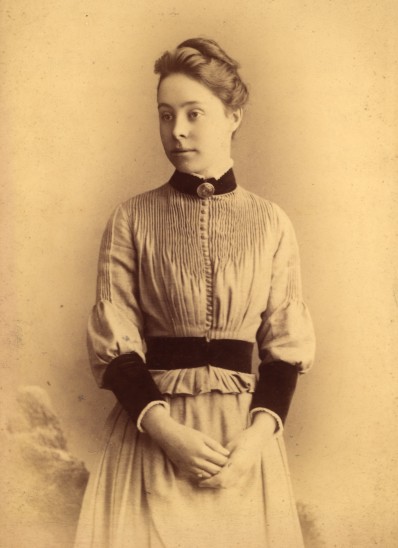 Philippa
Garrett Fawcett (4 April 1868 – 10 June 1948) was the first woman First place
in Cambridge Mathematics Tripos in 1890.
Philippa
Garrett Fawcett (4 April 1868 – 10 June 1948) was the first woman First place
in Cambridge Mathematics Tripos in 1890.Queer Places:
University of Cambridge, 4 Mill Ln, Cambridge CB2 1RZ
Lyttelton Court, 50 Lyttelton Rd, London N2 0HN, UK
 Philippa
Garrett Fawcett (4 April 1868 – 10 June 1948) was the first woman First place
in Cambridge Mathematics Tripos in 1890.
Philippa
Garrett Fawcett (4 April 1868 – 10 June 1948) was the first woman First place
in Cambridge Mathematics Tripos in 1890.
She was an English mathematician and educationalist. She was the first woman to obtain the top score in the Cambridge Mathematical Tripos exams. She taught at Newnham College, Cambridge, and at the normal school in Johannesburg, South Africa, then was an administrator for the London County Council.
Philippa Garrett Fawcett was born on 4 April 1868,[1] the daughter of the suffragist Millicent Fawcett and Henry Fawcett MP, Professor of Political Economy at Cambridge and Postmaster General in Gladstone's government. Her aunt was Elizabeth Garrett Anderson, the first English female doctor. When her father died, she and her mother went to live with Millicent's sister Agnes Garrett, who had set up an interior design business on Gower Street, Bloomsbury.[2]
Philippa Fawcett was educated at Bedford College, London[3] (now Royal Holloway) and Newnham College, Cambridge which had been co-founded by her mother. In 1890 she became the first woman to obtain the top score in the Cambridge Mathematical Tripos exams. The results were highly publicised, with the top scorers receiving great acclaim. Her score was 13 per cent higher than the second highest, but she did not receive the title of Senior Wrangler, as only men were then ranked and women were listed separately. Women had been allowed to take the Tripos since 1880, after Charlotte Angas Scott was unofficially ranked as eighth wrangler. When the women's list was announced, Fawcett was described as "above the senior wrangler". No woman was officially awarded the first position until Ruth Hendry in 1992.
Coming amidst the women's suffrage movement, Fawcett's feat gathered worldwide media coverage, spurring much discussion about women's capacities and rights. The lead story in the Telegraph the following day said: Once again has woman demonstrated her superiority in the face of an incredulous and somewhat unsympathetic world... And now the last trench has been carried by Amazonian assault, and the whole citadel of learning lies open and defenceless before the victorious students of Newnham and Girton. There is no longer any field of learning in which the lady student does not excel.[5]
Following Fawcett's achievement in the Tripos, she won the Marion Kennedy scholarship at Cambridge[6] through which she conducted research in fluid dynamics. Her published papers include "Note on the Motion of Solids in a Liquid".[7] She was appointed a college lecturer in mathematics at Newnham College, a position she held for 10 years.[8] In this capacity, her teaching abilities received considerable praise. One student wrote: What I remember most vividly of Miss Fawcett's coaching was her concentration, speed, and infectious delight in what she was teaching. She was ruthless towards mistakes and carelessness... My deepest debt to her is a sense of the unity of all truth, from the smallest detail to the highest that we know[9] Fawcett left Cambridge in 1902, when she was appointed as a lecturer to train mathematics teachers at the Normal School in Johannesburg, South Africa,[10] now part of the University of Pretoria. She remained there, setting up schools in South Africa, until 1905, when she returned to Britain to take a position in the administration of education for London County Council. At the LCC, in her work developing secondary schools, she attained a high rank. Denied a Cambridge degree by reason of her sex, she was one of the steamboat ladies who travelled to Ireland between 1904 and 1907 to receive an ad eundem University of Dublin degree at Trinity College.[11] Philippa Fawcett maintained strong links with Newnham College throughout her life. The Fawcett building (1938) was named in recognition of her contribution to the college, and that of her family. She died on 10 June 1948, two months after her 80th birthday, a month after the Grace that allowed women to be awarded the Cambridge BA degree received royal assent.[12]
On the University of Cambridge's West Cambridge site, there exists 'Philippa Fawcett Drive', alongside roads named after other notable contributors to STEM subjects, such as Ada Lovelace, Charles Babbage and J. J. Thomson.[13]
My published books: